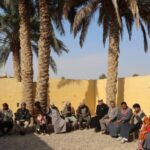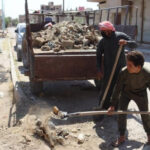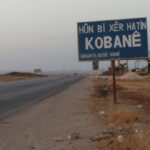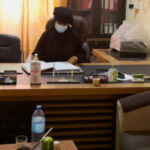Hajin (Arabic: هَجِيْن, Kurdish: Hecîn, also spelled Hajeen) is a small city in the Deir ez-Zor region in eastern Syria, south of Deir ez-Zor.
The Hajin subdistrict consists of four towns which had a collective population of 97,970 in 2004. The al-Shaitat tribe is the largest tribe in the area.
The city came under the occupation of the Islamic State of Iraq and the Levant (ISIL) in 2014, and in late November 2017, Hajin became ISIL’s de facto capital city.
The town was captured by the Syrian Democratic Forces on 14 December 2018 in the Battle of Hajin, after a week and a half of heavy clashes and intense airstrikes by the United States-led Combined Joint Task Force – Operation Inherent Resolve international coalition, and has since been part of the Autonomous Administration of North and East Syria.

The Fez’a tradition in Deir ez-Zor builds unity and strengthens social solidarity.

The Democratic Autonomous Administration of Deir Ezzor (DAA) is implementing an environmental and developmental project in the governorate’s schools. The project involves installing solar energy systems to provide a stable, eco-friendly electricity source, improve the educational environment, reduce operational costs, and raise awareness about the importance of clean energy.

Citizens and farmers in Hajin are repairing and cleaning canals and irrigation areas belonging to cooperatives working in the field of agriculture in a collective way.

In preparation for the forthcoming municipal elections in NES, planned for 11th of June [now postponed to 8 August, 2024], the DAANES passed a new law defining the administrative divisions of the NES region. This follows the DAANES’ publication of the new Social Contract in December 2023.

Administrative women in Deir ez-Zor, eastern Syria, believe that they have reached a significant milestone in the realm of administrative work. They attribute this progress to the Autonomous Administration of North and East Syria (AANES), which has provided ample opportunities for women to demonstrate their capabilities and expertise. For a long time, women in the





